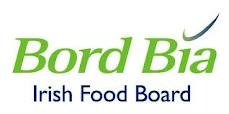

A recent survey carried out by the New York Times comparing consumers’ perceptions of what foods are healthy with the opinions of nutritionists revealed interesting results. It appears the public are confused in many areas about what they should be eating to maintain a healthy diet, and there is even conflict among the experts regarding certain products.
There were some foods that were easily categorised by everyone. It seems that everyone can agree that hamburgers, beef jerky and diet soda are unhealthy, while it is generally accepted that apples, oranges and porridge are good for you. However, there were also a high number of categories that ordinary consumers assumed to be healthy that most experts did not recommend, including granola bars, coconut oil and frozen yoghurt. Conversely, there were other items that the majority of experts agreed were healthful but the public were confused about, including tofu, sushi and hummus. Interestingly, quinoa was at the top of this list, showing that recent press around this superfood isn’t reaching all members of society.
While the public can be excused for their ignorance, it seems that nutritionists are also uncertain about the benefits of some foods, with both groups being split about popcorn, pork chops, whole milk, steak and cheddar cheese. This may be a reflection of the continuing debate around the role of fat in our diets. But it also shows how difficult conflicting health information is for members of the public to decipher, when even nutritional professionals are divided.
It seems that Irish consumers are also having trouble making sense of all the different health information that they are being bombarded with. Our 2015 Periscope report found that almost half of Irish adults are not sure what constitutes a healthy diet, and 3 in 10 consumers in the UK feel the same.
As our Consumer Lifestyle Trends research as shown, health and wellbeing are of increasing importance to consumers. However, this does not mean that consumers necessarily have the knowledge needed to negotiate the often complicated and conflicting messages that they receive. Manufacturers should not assume that consumers are aware of the inherent healthiness of their products, but should do their best to convey any benefits in an easily understandable fashion. On the other side of the equation, food producers may also want to take caution that consumers never feel they have been misled about the healthiness of a product, if they later discover that it is not as good for them as they believed.
For more information contact amy.bond@bordbia.ie
Source: Bord Bia – Consumer Confusion Over Healthy Foods








